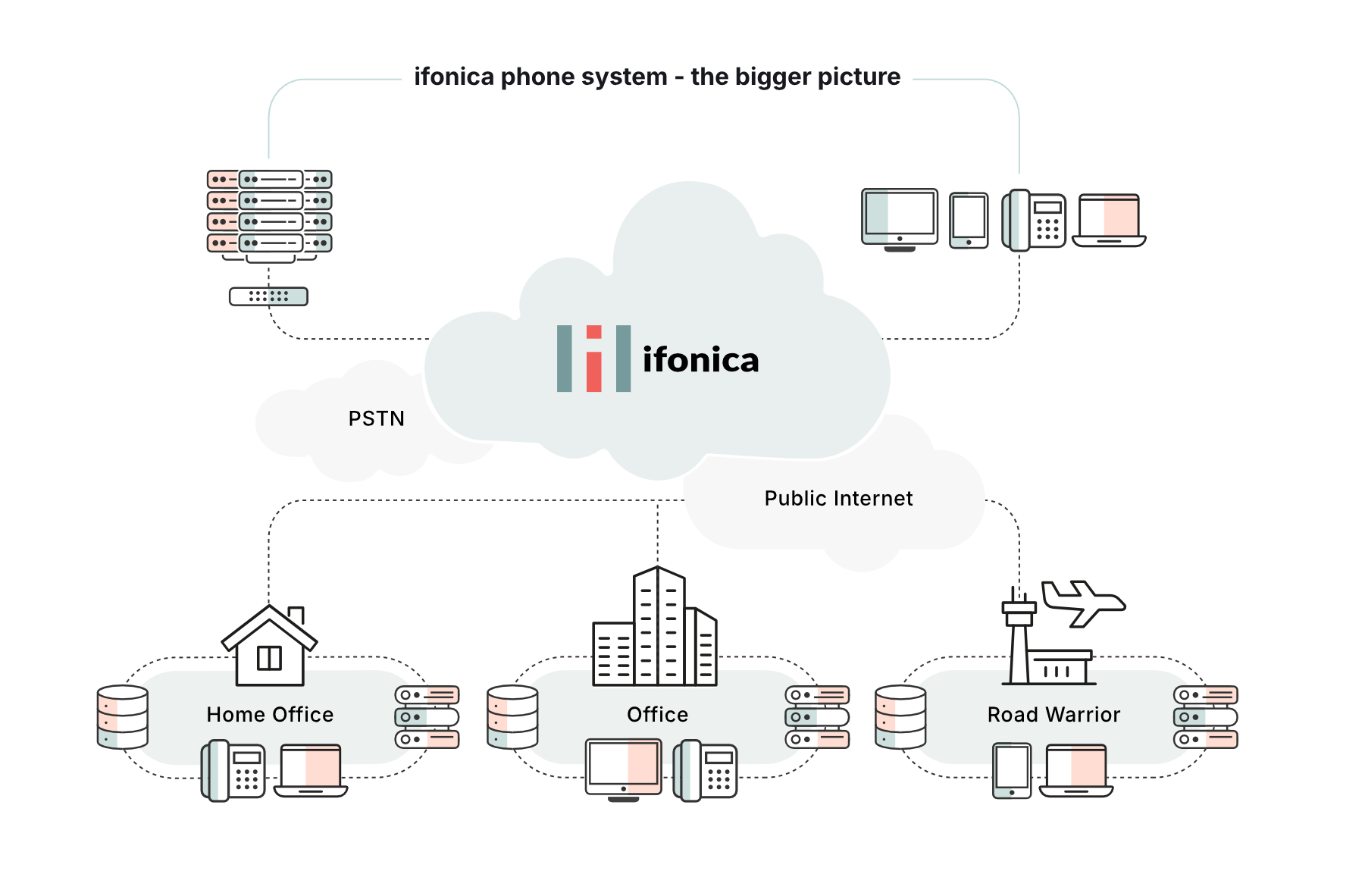Understanding PBXs
Where innovation and communication meet in the cloud

What is a PBX?
A Private Branch Exchange (PBX) is a private telephone network used within an organization. A PBX allows users to communicate internally and externally using different communication channels like voice, VoIP, and messaging. A PBX system manages call routing, extensions, and features like voicemail, call forwarding, and conferencing.
Type of PBX Systems
Different types of PBX systems have emerged due to advances in technology and changing business needs. Traditional PBX systems use analog or digital circuits, while IP PBX systems use the internet protocol. Virtual PBX systems are cloud-based and offer the most flexibility and cost-effectiveness. These systems have evolved to meet the changing needs of businesses for communication, collaboration, and scalability.
Traditional PBX
IP PBX
Hosted PBX
How a PBX works
A PBX system acts as a mediator between a business’s internal telephone network and external communication lines. When a call is made, the PBX system identifies the destination, routes the call to the appropriate line or extension, and ensures efficient call handling.
PBX vs. UCaaS
A PBX focuses on voice communication, while Unified Communications as a Service (UCaaS) integrates voice with video, messaging, and collaboration tools. Businesses often transition from a PBX to UCaaS for more comprehensive communication solutions.
PBX and VoIP
By using VoIP technology, IP PBX systems offer several advantages over traditional PBX systems, like reduced telecommunication costs, increased scalability, and the ability to support remote workers and multiple locations. Overall, an IP PBX system with VoIP technology provides businesses with a powerful and flexible communication solution that can be customized to meet their unique needs and requirements.
Integrating PBX with Collaboration Tools
For businesses looking to blend traditional telephony with modern communication, a PBX can be paired with solutions like Microsoft Teams. This allows seamless integration of voice into your existing workflows.
FEATURES
PBX systems efficiently route calls to the proper extensions or external numbers, ensuring streamlined communication. Call routing examples include direct extension dialing, department-specific routing, time-based routing, location-based routing and custom call-handling scenarios.
Users can receive and manage voicemail messages through the PBX system, often integrated with email, allowing for convenient access and retrieval of messages.
An automated system answers and directs calls, often with a voice menu, to the relevant department or person, providing a professional and streamlined experience for callers. An example scenario is greeting callers with “Thank you for calling, press 1 for Sales, press 2 for Support,” etc.
PBX systems enable multi-party conferences, allowing users to collaborate and communicate effectively, regardless of their location.
PBX systems can be integrated with Customer Relationship Management (CRM) software and other business applications, enhancing productivity and improving the overall business communication experience.

Why Choose ifonica?
Ifonica delivers collaboration and communication tools that are beneficial to your entire business. Ifonica’s innovative technology allows for the integration and unification of telephone calls, emails, video conferencing, faxes and other essential tools into a single, unified platform. Businesses can remain in lockstep to changing market demands as well as emerging technologies thanks to ifonica’s tight integration with UCaaS services like Microsoft Teams, Webex Calling, and Zoom Phones. This makes ifonica the optimal choice for companies looking to future-proof their business collaboration technology.
We are here to help you
Commonly Asked Questions about PBXs
Advantages include cost savings on phone bills, enhanced call management features, scalability, and improved internal communication.
A hosted PBX is managed off-site by a service provider, while an on-premise PBX is installed, maintained and managed within the organization’s facilities.
Yes, PBX systems can be scaled to accommodate the growth of a business, allowing for the addition of new lines and features as needed.
Consider factors such as the size of your business, budget, required features, and whether you prefer a hosted or on-premises solution.
Yes, many modern PBX systems can integrate with CRM software, email, and other business applications to enhance productivity.
Implementing strong passwords, regular software updates, and firewalls can help secure a PBX system from unauthorized access and attacks.